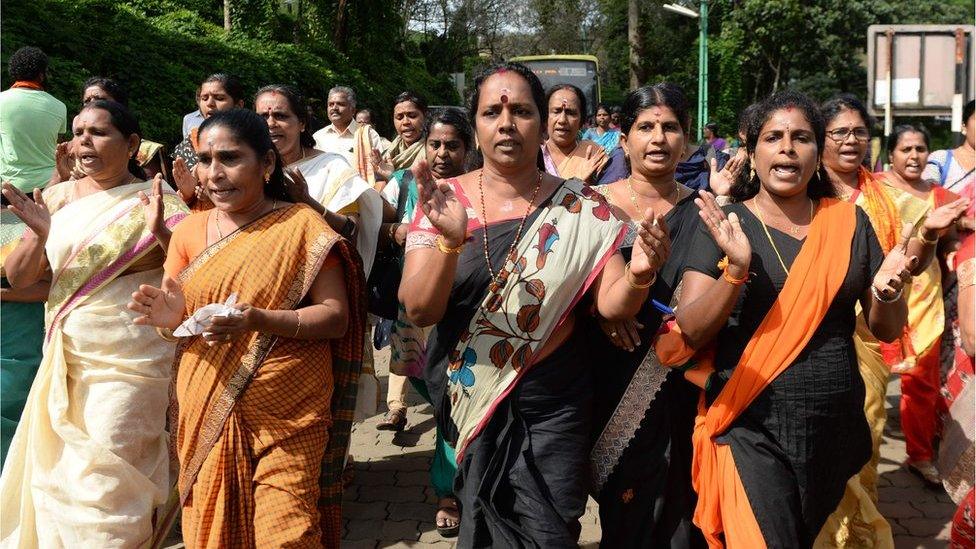Sabarimala: Indian women make history by entering temple
- Published
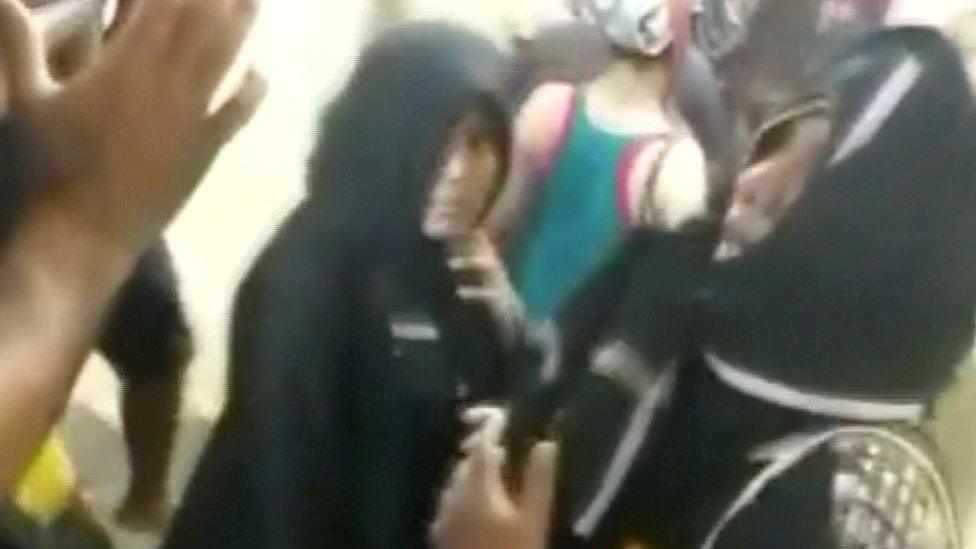
Protests have erupted after the two women entered the Hindu temple
Two Indian women have made history by entering a prominent Hindu shrine in the southern state of Kerala, following months of protests against their entry.
The Sabarimala temple was historically closed to women of "menstruating age" - defined as between 10 and 50.
The Supreme Court overturned that ban but protesters then attacked women and stopped them from going in.
The women's entry to the shrine sparked fresh protests and police used tear gas at several locations in Kerala.
Bindu Ammini, 40, and Kanakadurga, 39, devotees of the temple deity, Lord Ayyappa, entered around dawn.
"We arrived early in the morning and we had a darshan [saw the idol] for a few minutes," Ms Ammini told the BBC.
Kerala's Chief Minister Pinarayi Vijayan, whose government supports the Supreme Court ruling, told reporters that the women's entry into the temple was a historic moment.
On 1 January, his left-wing coalition government organised a "women's wall" - in which women from across Kerala formed a 620km (385-mile) human chain to protest against the ban.
Temple officials say the women have "defiled" the temple. It was closed for an hour in order to perform "purification rituals" but has now reopened.
Demonstrations across the state have since erupted and police have fired tear gas to disperse crowds. Violent clashes have been reported outside the state parliament, according to local media.
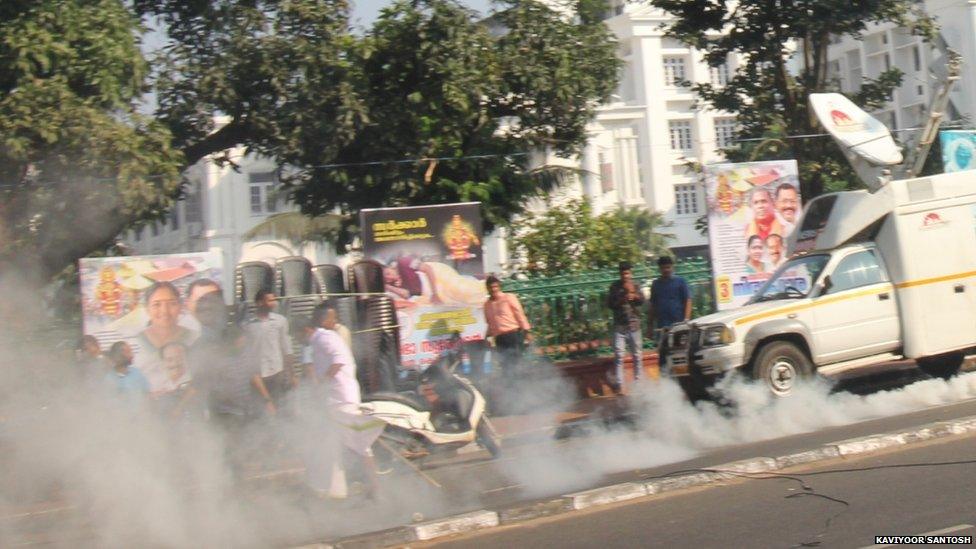
Police used tear gas to break up protests
The ruling Hindu nationalist Bharatiya Janata Party (BJP) has also called for a two-day protest after news of the women entering the shrine broke.
How did these women get into the temple?
Ms Ammini told the BBC that they began trekking up the hill on Wednesday morning around 1.30 local time (20:00 GMT Tuesday) and reached the shrine in two hours.
"We had no trouble trekking to the shrine and the officials were co-operative," she added. "We left before the protesters spotted us."
She said that plain-clothed police officers accompanied them. Given the early hour, it's likely there were no protesters and only a few devotees. The presence of the police also helped as temple officials would be breaking the law by refusing to let them enter the temple.
The shrine sits atop a steep hill and every year, millions of male devotees make the trek, often barefoot, to visit it.
One of the ways to enter the temple is to climb 18 holy steps - a sacred activity requiring a rigorous 41-day fast.
Ms Ammini said they did not climb the steps because they did not want to attract the attention of too many devotees and feared they might be attacked.
An activist opposed to women entering the temple, Rahul Easwar, told the BBC that "the police cheated other devotees by claiming the two women are transgender". Families of the two women have since denied this.
Four transgender women, accompanied by police, were allowed to pray inside the Sabarimala shrine in December. Their presence was not met with protests or resistance, police told the BBC.
The women, who are now under police protection, can be seen leaving the shrine in videos that have been circulating on WhatsApp.
Why are women of a certain age not allowed to enter Sabarimala?
Hinduism regards menstruating women as unclean and bars them from participating in religious rituals.
While most Hindu temples allow women to enter as long as they are not menstruating, the Sabarimala temple is unusual in that it was one of the few that did not allow women in a broad age group to enter at all.
According to the temple's mythology, Lord Ayyappa is an avowed bachelor who has taken an oath of celibacy. Devotees say the ban on women of "menstruating age" was in keeping with the wish of the deity who is believed to have laid down clear rules about the pilgrimage to seek his blessings.
Women who had tried to enter following the court ruling had to turn back because of protesters. Police arrested more than 2,000 people in October for rioting and unlawful assembly.
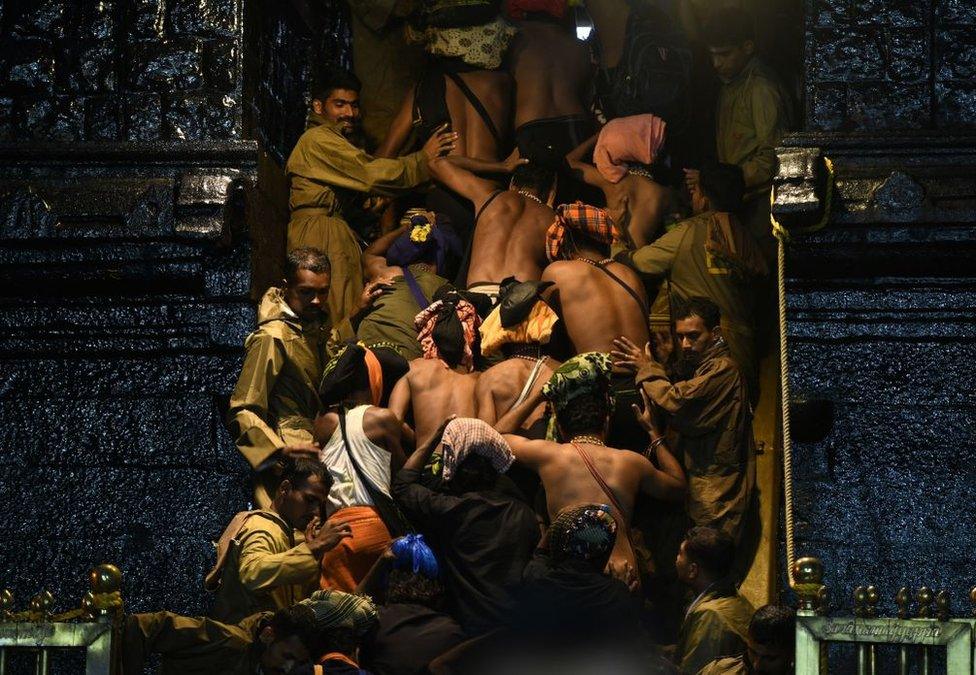
Every year, millions of male devotees climb the steps to the temple
Why has the issue become so political?
The Kerala state government supports the court verdict and Mr Vijayan has repeatedly said his government will provide the security to enforce it.
But India's ruling Hindu nationalist Bharatiya Janata Party (BJP) has argued that the court ruling is an attack on Hindu values, external.
The issue has become increasingly contentious in the run-up to India's general election, scheduled for April and May. Critics have accused Prime Minister Narendra Modi of pursuing a religiously divisive agenda to court the BJP's mostly-Hindu support base.
Additional reporting by Imran Qureshi and Ashraf Padanna.
- Published17 November 2018
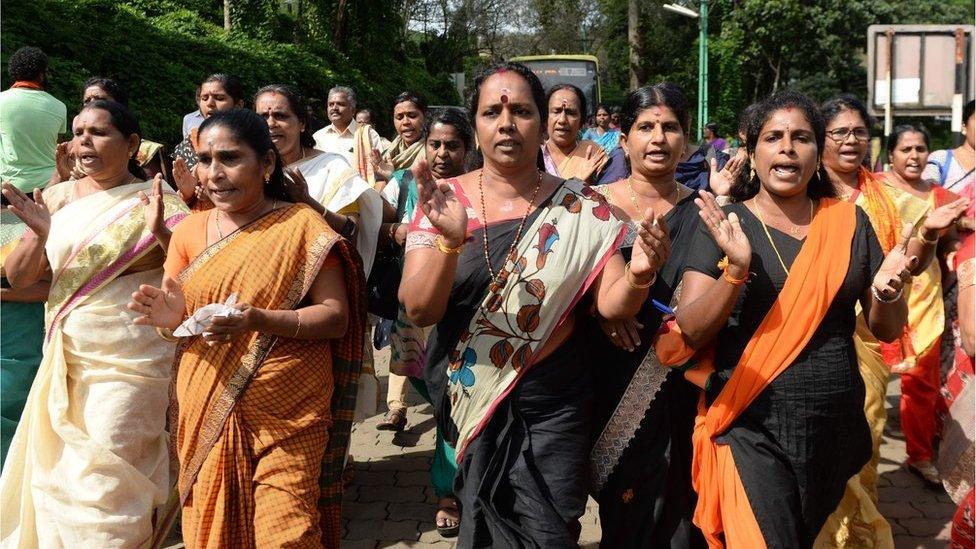
- Published19 October 2018
